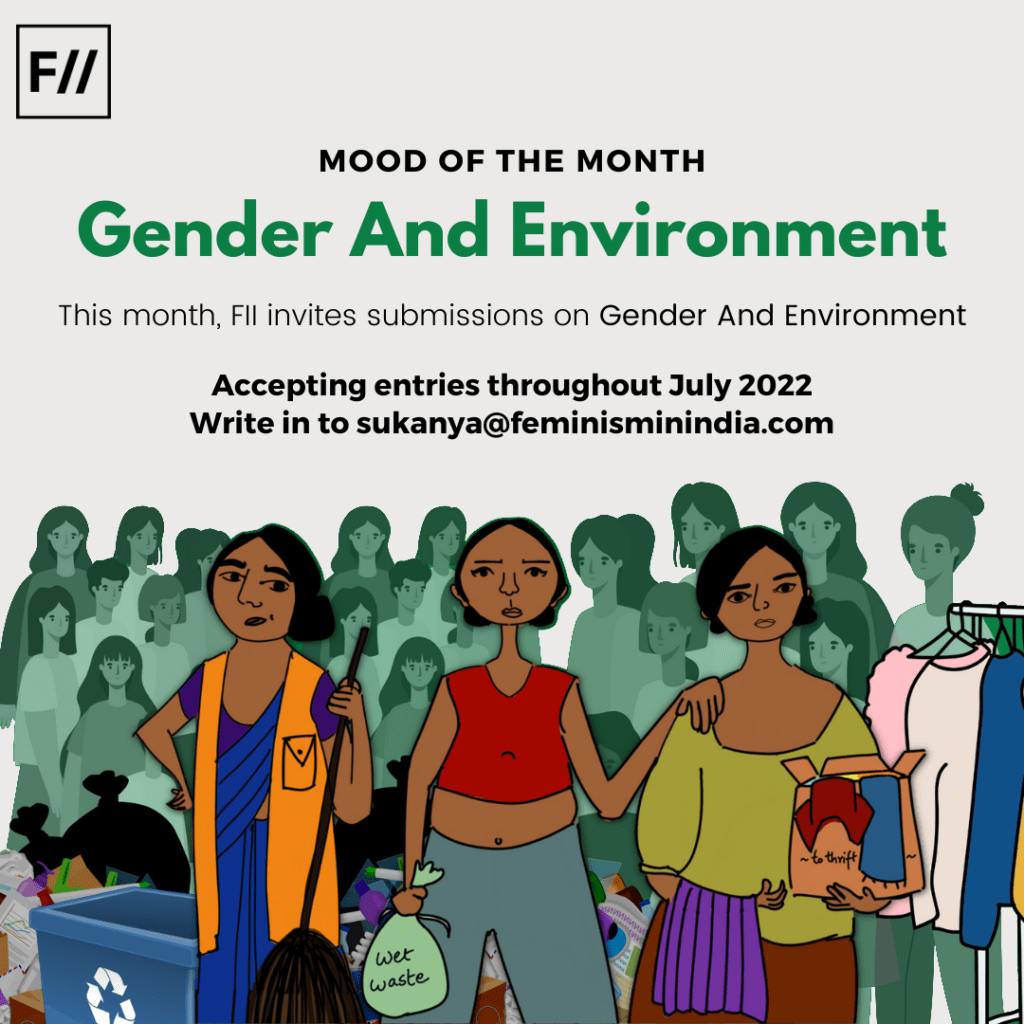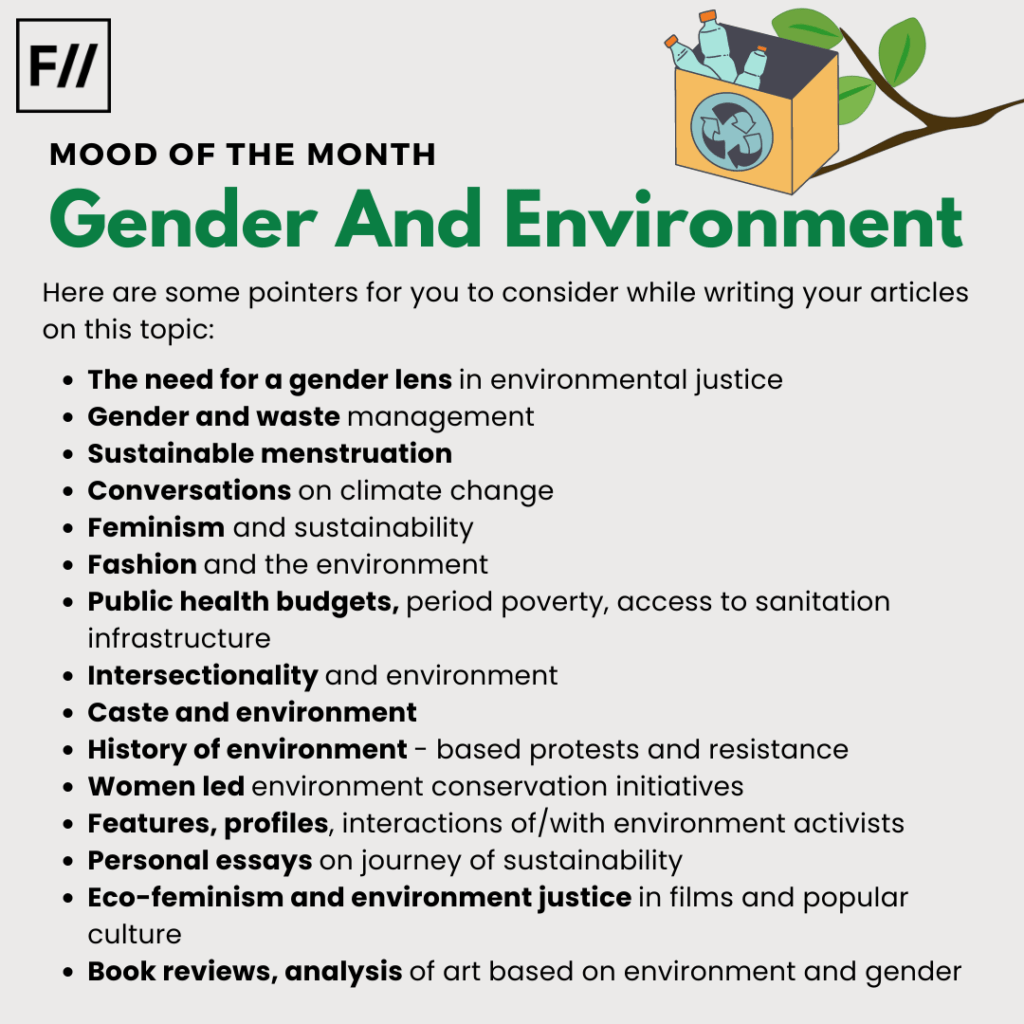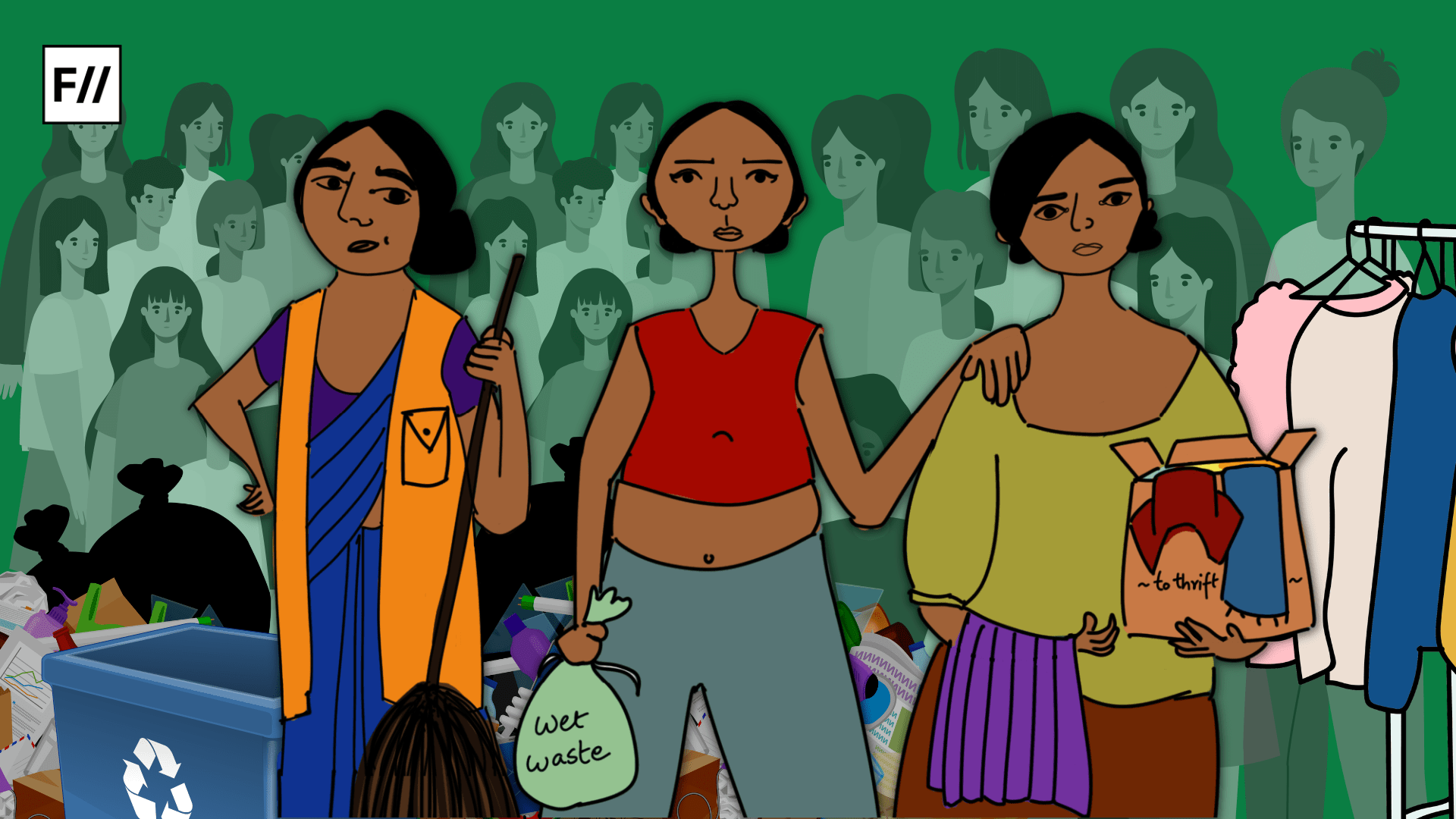The environment is our most valuable asset. It sustains us and ensures the continued existence of all living entities. Globally, we are at a juncture where environment justice is being prioritised owing to the fast depletion of resources and global warming.
While many approaches are being adopted to address the problem of environmental crisis, it is very important to look into the gender and intersectional aspects to arrive at a holistic, well-rounded redressal mechanism. Gender bias and inequality create significant barriers to environmental justice by limiting the access of women and gender minorities to resources, relief initiatives, decision making, conservation practices, policy framework, etc.
Policy frameworks are often exclusive of the specific needs of women and members of other marginalised genders. Very few women have access to authoritarian positions of decision-making, and this results in the exclusion of aspects like gender, caste, social location and sexuality in environmental policy formulation

In patriarchal societies, housekeeping, cooking, caregiving and the like, are assigned as gender roles to women. This in turn means that women are the first to encounter the effects of climate change and environmental degradation like lack of clean water, fuel, and food. Waste management is also an aspect of environmental crisis which is often solely managed by women within the domestic space.
Biological aspects like menstruation put women and other gender minorities at the forefront of facing scarcity of essential sanitation facilities, sustainable menstruation infrastructure, and waste disposal methods.
Policy frameworks are often exclusive of the specific needs of women and members of other marginalised genders. Very few women have access to authoritarian positions of decision-making, and this results in the exclusion of aspects like gender, caste, social location and sexuality in environmental policy formulation.
In many indigenous communities, women are the repositories of traditional knowledge, seed conservation techniques, forest preservation, and other environmental protection activities. The history of environment-related movements also shows how crucial women’s roles have been in furthering environmental protection. Yet, most women and their contributions remain sidelined or undocumented.
Also read: Environmental Racism: Addressing The Lack Of Intersectionality In Environmental Justice

The pandemic has also highlighted how environmental interventions in terms of waste management and resource conservation are extremely important, and why intersectionality must be at the core of such initiatives.
In the context of the increasing thrust on environmental justice, especially with respect to adopting a gender lens to the subject, as well as July being global Plastic Free Month, we at FII invite submissions on Gender and Environment, throughout July 2022.
Here are some possible pointers within the theme that may help you write your articles:
- The need for a gender lens in environmental justice
- Gender and waste management
- Sustainable menstruation, interactions between the body and environment
- Sustainable alternatives of living – ways to replace single-use plastics
- Elite sustainability – urban narratives of aping Western consumption patterns, replacing locally available food, environmentally damaging food options
- Conversations on climate change
- Feminism and sustainability – eco feminism and its relevance, sustainability and the feminist movement
- Fashion and the environment
- Public health budgets, period poverty, access to sanitation infrastructure
- Environment and intersectionality – access to resources, food, water
- Caste and environment – environmental sustainability and multiple marginalisations
- History of environment-based protests and resistance
- Women led environment conservation initiatives
- Circular economy, environment and gender
- Features, profiles, interactions of/with environment activists
- Personal essays on journey of sustainability
- Eco-feminism and environment justice in films and popular culture
- Book reviews, analysis of art based on environment and gender
This list is not exhaustive and you may feel free to write on topics within the theme that we may have missed out here. Please refer to our submission guidelines before you send us your entries. You may email your submissions to sukanya@feminisminindia.com
We look forward to your drafts and hope you enjoy writing them.
Also read: What Is Greenwashing?: Unpacking False Marketing Claims About Environmental Sustainability
Featured Illustration: Ritika Banerjee for Feminism In India
About the author(s)
Feminism In India is an award-winning digital intersectional feminist media organisation to learn, educate and develop a feminist sensibility and unravel the F-word among the youth in India.




